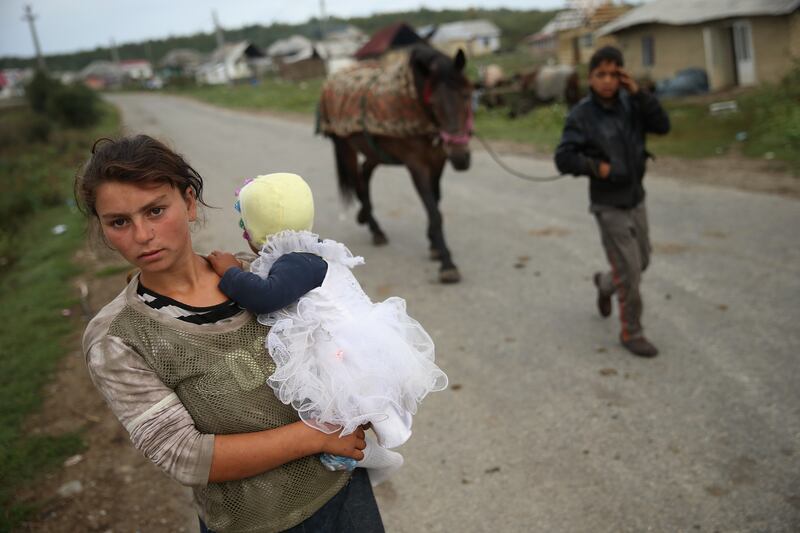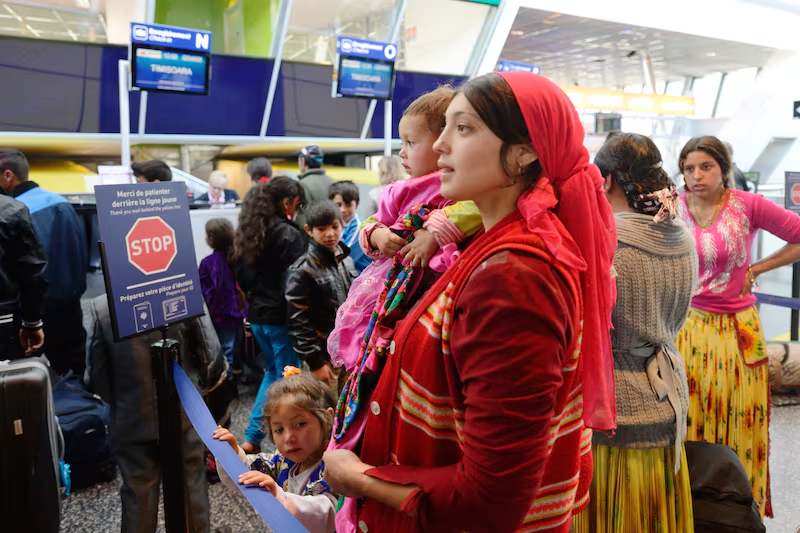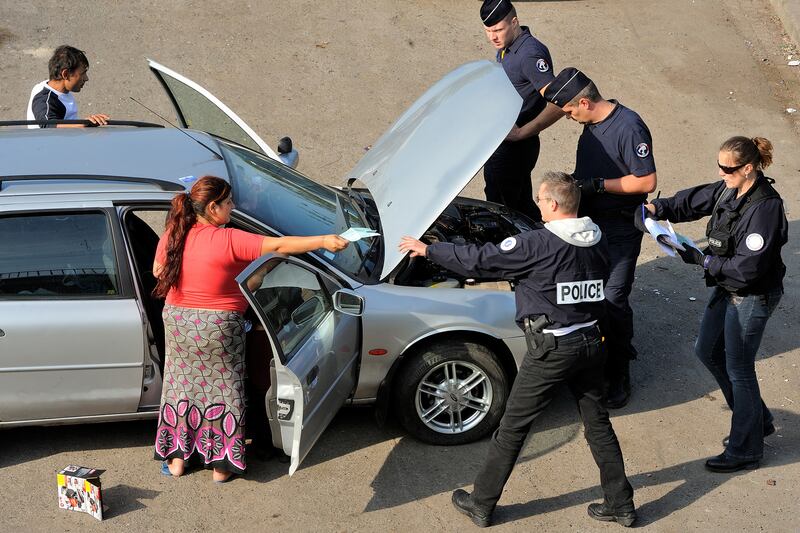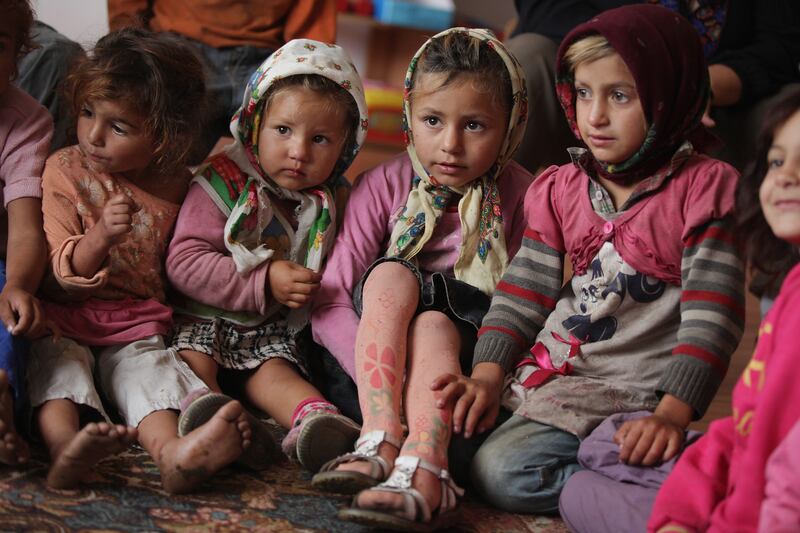The French are checking their pockets and searching their souls. The problem is the in-your-face presence of a few thousand Roma immigrants, mostly from Bulgaria and Romania, who are blamed for petty thievery, begging, camping illegally on public lands, sleeping under bridges or on grates in the city street and a host of minor crimes that the French authorities seem unable to control. The issue of criminality is real, but the level of public outrage conjures such sordid memories of racism in France that it has become a crisis of conscience as well, and it’s opened a major rift in the governing coalition.

The debate first got really ugly last summer, when Gilles Bourdouleix, the deputy mayor of Cholet, a town about 200 miles southwest of Paris, got into an altercation with a group Roma camped on city property. Some reportedly raised their hands in Nazi salutes, mocking him as he approached, and the mayor was heard to mutter, “Maybe Hitler didn’t kill enough of them.” Gypsies, as the Roma were commonly called in the last century, were among those groups slated for extermination in the death camps of the Third Reich. Hundreds of thousands died.
Bourdouleix subsequently claimed he’d merely repeated the words of a reporter on the scene, who’d egged him on. Never mind. In a country that still grapples with the way many of its people averted their eyes during the Holocaust, this sort of rhetoric is wholly unacceptable. Bourdouleix, a member of the small centrist Union of Democrats and Independents party, resigned.
But the Roma remained on the streets of French cities, perceived as a nuisance in many places, a threat in some. The mayor of Nice reportedly vowed to “bring them to heel” and to give his “instruction manual” to other mayors. Finally, French Interior Minister Manuel Valls, in charge of law and order under the Socialist government of President François Hollande, declared on September 24 that it was time “to tell the truth”: “These populations have ways of life that are extremely different from ours, and which obviously are in confrontation with ours.” The Roma do not integrate well into French society, he said, and suggested it was time for most of them to go back to Romania and Bulgaria. Then Valls ordered their makeshift shanty-towns and trailer parks in several cities torn down. In Paris alone this year, the city reports 18 Roma camps forcibly “evacuated.”

The local political context is important. French municipal elections are only a few months away, and the presence of Roma is a big issue in many towns. But it’s also a European one. Bulgaria and Romania, which have, between them, more than 2.5 million Roma citizens, hope to enter the Schengen group of countries within the European Union at the beginning of the year, meaning no passport would be required for travel across most national borders. The French and German governments have both said they’re against this. Valls’s declarations offer one reason why.
Some of Valls’s fellow cabinet members were so deeply offended by his remarks that they spoke out publicly. When Prime Minister Jean-Marc Ayrault defended Valls in Parliament, he faced jeers and whistles. Hollande basically tried to remain above the fray and reinforced his already doleful image as an ineffectual executive. His government looks out of control.
The real problem, however, is on the street. A poll taken in the wake of Valls’s remarks shows that 93 percent of the respondents agreed they Roma did not integrate well in France, and 77 percent agreed that Valls was right to say so.

French literature, films, and music once romanticized the gypsies, from Esmeralda in The Hunchback of Notre Dame to the Cannes Film Festival’s Palme d’Or for Emir Kusturica’s “Time of the Gypsies,” and of course, the songs of the Gipsy Kings. But anyone who’s spent time in Paris these last few months is likely to have come across petty criminals, mostly underage and therefore virtually unprosecutable, making life miserable for those whom they catch unawares.
The common assumption among Parisians is that most are Roma, but whether this is a reflection of prejudice or reality is hard to say. French law forbids record keeping that reflects racial, ethnic or religious identity, and because many of these latter-day Artful Dodgers are kids, and are let go even if they are caught, there are no accurate statistics to support the conventional wisdom. There is only pervasive resentment.
The most common sightings are of groups of young teenage girls, particularly on the Métro. Some of them dress in traditional long skirts; others are outfitted in jeans or leggings—clothes that allow them to blend in more easily. The usual giveaway: they carry their shoulder bags with the straps across the body, leaving both hands free.
The U.S. Embassy website, without singling out any group, carries a full-page advisory about pickpockets that begins, bluntly, by warning: "The first rule of thumb is don't have anything more in your wallet than you are willing to lose." It advises, "Don't chase down whoever you think stole your wallet. Remember if they work in groups, your wallet was most likely handed off before you realized it was gone.”

The police take measures to try to fight the petty thefts. When security cameras in the Métro spot a suspect group, the loudspeakers warn that pickpockets are aboard. It’s a refrain almost as familiar as “mind the gap.” Last April, Paris Police Prefect Bernard Boucault announced a “tourist security plan” that stationed more police officers near famous Parisian landmarks, and the cops claimed they were effective. The number of complaints filed by pickpocket victims in the Musée du Louvre, which used to average 120 a day, reportedly was down to 15 per day by May. As recently as August, Interior Minister Valls proudly claimed that Paris is a “secure city.” Yet, between August 15 and 18, at the height of the summer holidays, more than 50 people were arrested for purse snatching.
Sometimes it appears the police take action without making arrests, since they know minors are difficult to prosecute and the adults in their lives most likely put them up to the crime in the first place.
One example: last August, a middle-aged American woman living in a comfortable neighborhood in sight of the Arc de Triomphe went to an outdoor ATM machine to make a withdrawal when suddenly two teenage boys closed in on her. She had already punched in her code. While one roughed her up, the other pressed every button on the keypad. She was terrified and confused. But what happened next surprised her still more. Two grown men appeared as if they had been mere bystanders. While one of the boys ran away, the men grabbed the other one and shook him. “Did they take anything?” one man asked the American woman. “No,” she said. “Yes they did,” said the man. He plunged his hand into the boy’s pants and pulled out €300, about $400. The woman demurred. The man insisted. “It’s yours,” he said. “Check your account when you get home.” Sure enough, €300, the daily maximum, had been withdrawn. The boys had been so quick, and she had been so confused, she hadn’t seen it.
The woman, who asked not to be identified by name in this story, had no idea who the good Samaritans were, but employees in local businesses said plainclothes police regularly staked out that and other ATMs to try to catch thieves in the act. The boys may or may not have been Roma, but people in the neighborhood, once again, assume they are.
A few passionate French voices continue to be raised in defense of the Roma, and against the evident racism that affects them. Philosopher André Glucksman argued in the Libération newspaper that in an age of high unemployment, “we are scared not of the Roma but of resembling them.” But it’s doubtful that argument will win many converts. Too many French see themselves as the victims of the Roma, at this point, and not the other way around.






